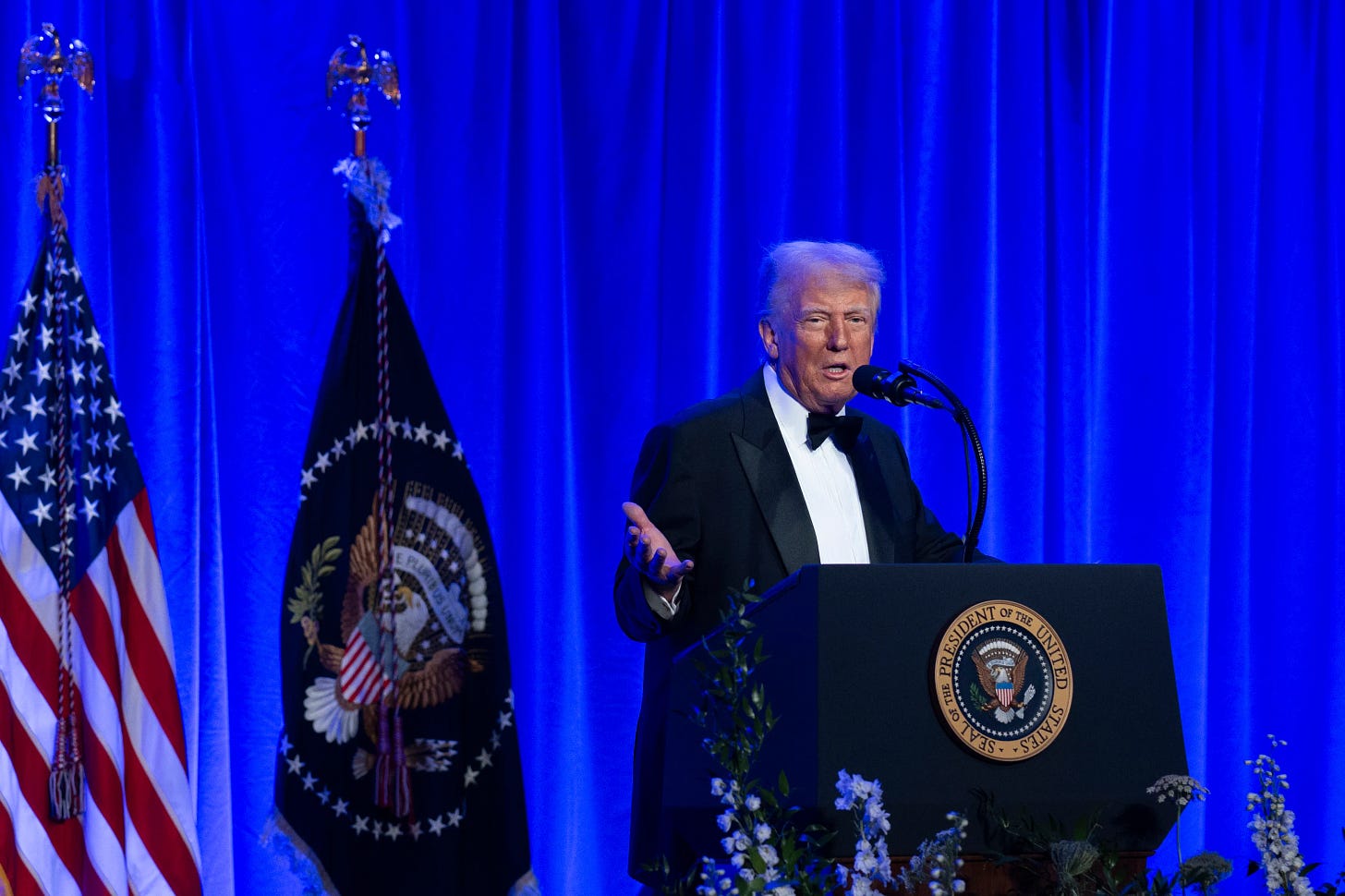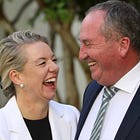Trump-Xi Summit Faces Uncertainty as Australia Scores Major Win with US
Cultural clash threatens deal at next week's APEC meeting while Albanese cements critical minerals partnership
This piece is freely available to read. Become a paid subscriber today and help keep Mencari News financially afloat so that we can continue to pay our writers for their insight and expertise.
Today’s Article is brought to you by Empower your podcasting vision with a suite of creative solutions at your fingertips.
President Donald Trump and Chinese President Xi Jinping will meet next week on the sidelines of the APEC summit in what analysts describe as a high-stakes encounter threatened by fundamental differences in negotiating style, even as Australia celebrates what experts call the most successful meeting any world leader has had with Trump this year.
Gordon Flake, founder and chief executive of the Perth US Asia Centre, told Sky News the two superpowers remain “very far apart on so many of the fundamentals” heading into the Korea summit, casting doubt on whether Trump can secure the trade deal he clearly wants.
“There’s a real culture clash going into this APEC summit,” Flake said. “The Chinese have a system where they are wanting to make sure that every T is crossed and every I is dotted before their president heads into the meeting and the Trump administration is much more of a cult of personality, which is a strange thing to say about an American president.”
The contrasting approaches create a diplomatic impasse. Chinese officials want every detail finalized before Xi sits down with Trump. But the Trump administration operates under orders that the president himself will make the deal, preventing staff from reaching preliminary agreements.
“They’re under orders that he will do the deal himself. And so they can’t come to agreement until the meeting itself,” Flake said. “Whether or not the Chinese are willing to give him enough of a compromise that he can claim victory remains to be seen.”
Beijing confirmed this week it remains in close communication about the summit but gave no indication of shifting its no-limits partnership with Russia, a position that complicates US objectives in multiple theaters.
Truth matters. Quality journalism costs.
Your subscription to Mencari directly funds the investigative reporting our democracy needs. For less than a coffee per week, you enable our journalists to uncover stories that powerful interests would rather keep hidden. There is no corporate influence involved. No compromises. Just honest journalism when we need it most.
Not ready to be paid subscribe, but appreciate the newsletter ? Grab us a beer or snag the exclusive ad spot at the top of next week's newsletter.
The uncertainty around the Trump-Xi meeting stands in sharp contrast to Prime Minister Anthony Albanese’s visit to Washington this week, which produced concrete wins on critical minerals and AUKUS submarines.
“If you look back over the year 2025, I can’t think of another head of state that’s had a less contentious, more successful meeting than our prime minister,” Flake said.
Australia secured a major critical minerals partnership with the United States, a deal that drew an immediate response from Beijing. China labeled the agreement “a pledge of loyalty from Australia to the United States,” signaling its displeasure at the economic and security implications.
The minerals deal targets a vulnerability in global supply chains that China currently dominates. Rare earth elements power everything from smartphones to electric vehicles to advanced weapons systems. China controls most of the world’s processing capacity and demonstrated that leverage this week by banning exports of rare earth technologies as part of its trade negotiations with Washington.
“Ironically, it is part of this trade negotiation with the United States that has led them to banning the export of rare earth elements, or at least technologies related to that, that has led the rest of the world to be concerned,” Flake said.
The Australia-US partnership aims to build an alternative supply chain for national security purposes. Flake emphasized the goal isn’t to replace China’s dominance in consumer markets.
“We’re not trying to take out the critical minerals or specifically the rare earth processing supply chain out of China,” he said. “What we’re trying to do is for national security, defense industry, advanced communication purposes, build a new independent supply chain external to China to deny them precisely the type of behaviour they’ve entered into this week.”
Australia brings substantial assets to the partnership. The country holds the world’s greatest endowment of critical minerals and possesses deep expertise in mining operations. Western Australia stands to benefit particularly, with the US Defense Department committing to invest in a gallium processing facility in the state.
“If you’re looking at it from Perth, it almost seemed like it was a summit very much focused on West Australia and West Australian businesses because we have a very important role to play in the relationship with the United States,” Flake said.
West Australian Resources Minister Madeleine King accompanied Albanese to Washington, marking her second such trip in two years. Flake credited King’s role in advancing the critical minerals agenda.
“It’s important to remember that the critical minerals deal didn’t come out of the ether. It’s not something new,” he said. “It’s something that Australia has been working on, and particularly Minister King has been working on for two years, with a uniquely West Australian understanding of the industry and the trends and how it impacts the relationship with the United States.”
Trump also confirmed during the meetings that Australia will receive the nuclear-powered submarines promised under the AUKUS agreement. The $368 billion defense pact between Australia, the United States and the United Kingdom represents a generational shift in Australia’s military capabilities.
“We need AUKUS, but they need us as well as AUKUS. It really is a mutually beneficial deal between the U.S., the U.K., and Australia,” Flake said.
Australia’s trade position with the United States helped smooth the negotiations. Unlike most countries, Australia runs a trade deficit with the US, meaning Americans sell more to Australia than they buy. That dynamic appeals to Trump’s transactional approach to international relations.
“We’re still kind of the gold star country in the world because we have a trade deficit with the United States. So they’ve got not a lot to complain about on their side,” Flake said.
The meetings also produced an awkward moment that dominated headlines when Trump appeared not to recognize Australian Ambassador Kevin Rudd, the former prime minister who previously criticized Trump before taking the diplomatic post. Trump later told Rudd, “I don’t like you and I think I never will.”
Former Labor minister Kim Beazley told Sky News he found the interaction amusing. Flake suggested the focus on that exchange missed the bigger story.
“I can understand that that might have been deeply disconcerting for our former prime minister, now ambassador, but he wouldn’t know the ambassadors of individual countries and they wouldn’t have regular interactions other than an initial picture,” Flake said.
He argued the attention on Rudd “distracted attention from the real accomplishments on AUKUS and critical minerals.”
The success of the Australia-US meetings raises questions about whether Trump can replicate that outcome with China next week. Flake expressed skepticism, noting China has little incentive to help resolve the Ukraine-Russia conflict, one of Trump’s stated priorities.
“They benefit tremendously from keeping not just the United States, but Europe can focus on a different theatre away from their core interests here in the Indo-Pacific,” he said.
Trump’s public statements this week that China isn’t interested in invading Taiwan anytime soon also concerned analysts who worry such remarks could undermine decades of deterrence.
“We’ve now got 50, 60 years of deterrence that has worked. And one of the things that makes deterrence work is when you make it quite clear that there would be a cost to a Chinese invasion,” Flake said.
He warned Trump’s approach risks sending the wrong signal to Beijing. “One of the real fears is that President Trump’s approach to this issue, and in different ways projecting that he’s not worried about China, may in some respects lead to a miscalculation on the part of China. In other words, a deterioration of deterrence.”
China has fundamentally changed how it views the Taiwan issue in recent years, making the balance between avoiding provocation and maintaining credible deterrence more delicate.
“It’s a fine balance, right? You don’t want to be provocative, but on the other side, you don’t want to give a green light to the Chinese,” Flake said. “So there is a risk of conflicts, no question.”
The contrasting fortunes of Australia and China in their respective dealings with Trump reflect different starting positions. Australia brought valuable resources and favorable trade dynamics. China faces a US administration determined to rebalance economic ties and counter Beijing’s regional ambitions.
Whether Trump’s preference for making deals personally can overcome the fundamental differences between Washington and Beijing will become clear next week in Korea. For now, Australia stands as proof that success with this White House is possible when interests align and the groundwork is solid.
The critical minerals partnership and AUKUS confirmation give Australia concrete wins to build on. Implementation challenges remain, particularly on environmental approvals and workforce development for the minerals sector. But the diplomatic foundation is set.
China’s sharp reaction to the minerals deal suggests Beijing recognizes the strategic significance. By labeling it a loyalty pledge, China signals it views the partnership as more than economic cooperation. The contest for influence in the Indo-Pacific continues to intensify, with critical minerals emerging as a new front in that competition.
Sustaining Mencari Requires Your Support
Independent journalism costs money. Help us continue delivering in-depth investigations and unfiltered commentary on the world's real stories. Your financial contribution enables thorough investigative work and thoughtful analysis, all supported by a dedicated community committed to accuracy and transparency.
Subscribe today to unlock our full archive of investigative reporting and fearless analysis. Subscribing to independent media outlets represents more than just information consumption—it embodies a commitment to factual reporting.
As well as knowing you’re keeping Mencari (Australia) alive, you’ll also get:
Get breaking news AS IT HAPPENS - Gain instant access to our real-time coverage and analysis when major stories break, keeping you ahead of the curve
Unlock our COMPLETE content library - Enjoy unlimited access to every newsletter, podcast episode, and exclusive archive—all seamlessly available in your favorite podcast apps.
Join the conversation that matters - Be part of our vibrant community with full commenting privileges on all content, directly supporting The Evening Post (Australia)
Catch up on some of Mencari’s recent stories:
It only takes a minute to help us investigate fearlessly and expose lies and wrongdoing to hold power accountable. Thanks!








